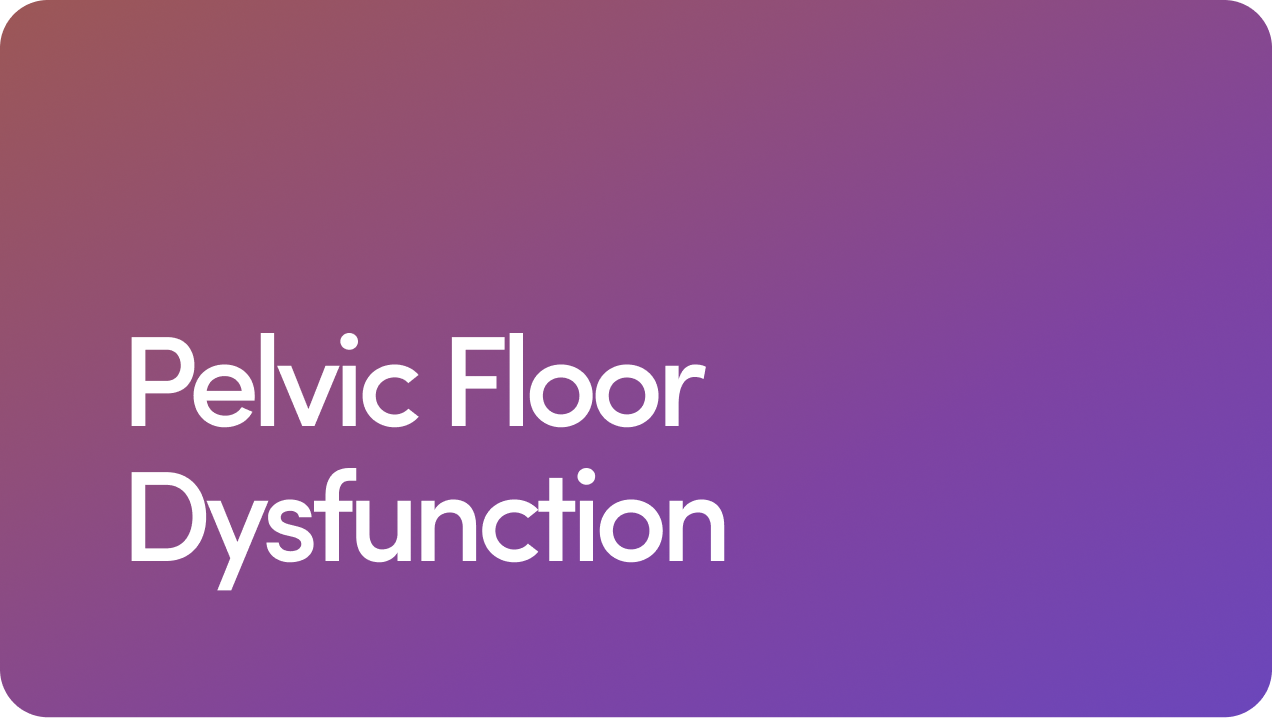Content
Enjoy sex like you used to
Alcohol and Sex: How Does Alcohol Affect a Man Sexually?

You might use alcohol to relax after a long day or amp yourself up before a date. But how does alcohol affect a man sexually? Does it make you more confident in the bedroom? Or is it more likely to land you in “whiskey dick” territory?
Despite claims that alcoholic beverages improve sexual activity, some research shows that alcohol may actually lower your sex drive, cause erection problems, and even affect how you ejaculate if used in excess.
But before you stop going to your favorite brewery in the name of protecting your sex life, it’s worth finding out more about the connection between sex and alcohol.
Learn how drinking affects sexual arousal, what it does to erections, and what to do if you’re experiencing alcohol-related sexual health problems.
Content
Having a drink or two might make you feel more confident and put you in the mood for sex. But there can also be unpleasant side effects of alcohol consumption — especially if you’re struggling with alcohol abuse or alcohol use disorder.
Men who engage in heavy drinking, for example, often experience sexual dysfunctions like erectile dysfunction (ED), premature ejaculation (PE), and other sexual health issues.
Keep reading to learn more about the negative effects of alcohol on men’s health — in and outside the bedroom.
Does Alcohol Affect Sex Drive?
People wine and dine for a reason: the hope of boosting their sex drive. But why does alcohol make you horny?
Your sex drive (or desire for sexual activity) can vary depending on many factors, from stress to mental health issues to physical health conditions. Drinking alcohol is associated with lowered inhibitions and an enhanced mood, both of which could lead to sex — but it may not be as effective as you think.
How Does Alcohol Affect Sex Drive and Stamina?
Alcohol binds to receptors in the brain, increasing the chemical dopamine and making you feel carefree. But while you might feel good after a few drinks, alcohol doesn’t necessarily act as an aphrodisiac.
Some research shows that excessive alcohol consumption or binge drinking can lower sexual desire and even cause an “aversion” to sex.
Social settings may play a bigger role in the influence of alcohol on moods, according to some studies.
In other words, the relationship between alcohol and sex drive could be more of a placebo effect. It might actually be the ambiance at a candlelit dinner that’s boosting your desire for sex rather than the wine.
How Does Alcohol Affect Erections?
You may have heard of or even experienced “whiskey dick.” This is a slang term for temporary alcohol-induced ED that happens after you’ve had a few drinks.
Alcohol affects everyone differently, of course. Some guys may experience ED after a couple of drinks, while others might experience it after a night of heavy drinking.
Alcohol Affects Blood Flow
Erections usually begin with either mental or physical stimulation, which triggers a multi-step internal process involving the nervous system and cardiovascular system. Alcohol in the bloodstream can mess with this process.
As you feel sexually stimulated, neurotransmitters released by nerves inside the penis make blood vessels relax and widen, increasing blood flow to the erectile tissue inside the penis.
Alcohol can disrupt erections in a few different ways, though. It slows down the central nervous system, making it harder to get and maintain an erection firm enough for sexual intercourse.
Alcohol Is Dehydrating
Alcohol also acts as a diuretic. This means it makes you pee more often, which leads to dehydration while reducing total blood volume.
Since erections are all about healthy blood flow, this can make it even more challenging to get and maintain an erection.
Finally, dehydration causes the body to release angiotensin, a hormone that increases blood pressure. Angiotensin also causes blood vessels to narrow, restricting blood flow and possibly making erections more difficult to achieve.
A large amount of alcohol can increase your chances of experiencing temporary erectile dysfunction.
When consumed in excess, alcohol can also reduce testosterone, a primary sex hormone that plays a crucial role in erections and sexual desire.
Maybe alcohol doesn’t kill your erections right away — but it can cause issues with your bedroom performance by making you ejaculate too early or too late.
In one small study of 84 males with alcohol dependence syndrome, 15.5 percent of participants experienced premature ejaculation. PE is when sexual stimulation causes you to reach orgasm and ejaculate too quickly during sex. It can cause distress for you and your partner and lead to sexual performance anxiety.
In another study of 100 subjects, about seven percent of men with alcohol dependence experienced delayed ejaculation. The opposite of PE, delayed ejaculation is when you find it difficult to reach orgasm and ejaculate after an extended period of stimulation.
One of the most popular myths about alcohol is that it can make sex better. Why does alcohol make you sexually active? And does alcohol really make sex feel better?
The term “beer goggles” isn’t just anecdotal — alcohol might make you view people as more sexually attractive. A 2014 study found that those who consumed alcohol rated images of people more highly for attractiveness than a placebo group.
You may also feel like sex lasts longer after you’ve had a few drinks. But this is most likely due to the desensitizing effect of alcohol — hence the issue with delayed ejaculation mentioned above.
A small study found that men experienced less sensation in their genitals after drinking alcohol, meaning it may take longer to reach orgasm.
And remember what we said about alcohol making you feel carefree by binding to dopamine receptors in your brain? The dark side of this effect is that being carefree can quickly become risky. Alcoholic drinks may lead you to have unprotected sex, making you vulnerable to contracting sexually transmitted infections (STIs).
Does Alcohol Affect Fertility?
Another way alcohol can affect your sex life is by harming your fertility. Alcohol-related ED and low sex drive can make it difficult to perform satisfactorily, but other physical changes can happen if you drink too much.
Research shows that long-term, heavy alcohol use may lead to testicular shrinkage, low testosterone, and decreased sperm production. Binge drinking is also associated with liver problems, which can result in hormonal imbalances that contribute to male infertility.
Yes. An indirect way alcohol can wreck your sex life is by wrecking your relationship. Studies show that higher levels of emotional intimacy are associated with higher sexual desire and more frequent sexual activity in partnered couples.
Yet, relationships can suffer due to alcohol’s impact on communication, emotional intimacy, and trust. Partners may feel neglected or frustrated by the impaired sexual performance and emotional distance.
Studies show that heavy drinking is linked to lower relationship satisfaction and more negative interactions between married partners. People who drink too much are less likely to actively engage in improving their relationships, often because they don’t place as much value on their intimate relationships as responsible drinkers (or non-drinkers).
Alcohol and Sex: Final Thoughts
Though alcohol may have a reputation as something that leads to sex, it’s a depressant that can mess with blood flow to the penis. Excessive drinking can seriously impact your sexual performance.
How does alcohol affect a man sexually? Here’s what to remember:
Heavy drinking may lead to sexual dysfunction. Excessive alcohol consumption — either occasionally having too many drinks or alcohol dependence syndrome — has been linked to ED, decreased sex drive, delayed or premature ejaculation, and reduced testosterone levels.
Alcohol isn’t a reliable aphrodisiac. A drink or two might make you feel more confident and sexier (depending on your own alcohol tolerance, of course). But overdoing it on the booze can cause more problems in bed.
Excessive alcohol intake may be a risk factor for other health issues. While you might feel bolder and more likely to take risks sexually after drinking, it’s important to practice safe sex and make sure your partner is on the same page.
Alcohol creates problematic consent issues. Another risk of drinking too much is not being able to give consent. This goes without saying, but always make sure all parties involved can give clear, enthusiastic consent. If it’s not a hell yes, it’s a hard no.
If you’re struggling with erectile dysfunction or premature ejaculation — either with or without alcohol — talk to a healthcare professional specializing in sexual medicine about possible treatments.
Erectile dysfunction treatments are typically oral medications such as:
Sildenafil (generic Viagra®)
Vardenafil (Levitra®)
Avanafil (Stendra®)
For premature ejaculation, your provider may prescribe antidepressants off-label to help you last longer, or you can turn to over-the-counter products like desensitizing wipes.
You may also want to consider therapy, healthy lifestyle changes, or a combination of treatments to improve sexual function.
Want to learn more about the link between alcohol and sex? Find out what happens to ED symptoms when you stop drinking and learn which three drinks may help boost your libido.
17 Sources
- Acharya RA, et al. (2022). Prevalence and pattern of sexual dysfunction in male patients with alcohol dependence. https://www.ncbi.nlm.nih.gov/pmc/articles/PMC9743820/
- Arackal BI, et al. (2007). Prevalence of sexual dysfunction in male subjects with alcohol dependence. https://www.ncbi.nlm.nih.gov/pmc/articles/PMC2917074
- Chen X, et al. (2014). The moderating effect of stimulus attractiveness on the effect of alcohol consumption on attractiveness ratings. https://academic.oup.com/alcalc/article/49/5/515/120942
- Fairbairn C, et al. (2015). Extraversion and the rewarding effects of alcohol in a social context. https://www.ncbi.nlm.nih.gov/pmc/articles/PMC4595151/
- Fountain JO, et al. (2023). Physiology, renin angiotensin system. https://www.ncbi.nlm.nih.gov/books/NBK470410/
- Hirsch I, et al. (2022). Decreased libido in men - men’s health issues. https://www.merckmanuals.com/home/men-s-health-issues/sexual-dysfunction-in-men/decreased-libido-in-men
- Iranpour A, et al. (2019). A review of alcohol-related harms: a recent update. https://www.ncbi.nlm.nih.gov/pmc/articles/PMC6633071/
- Khaddouma AL, et al. (2016). Drinking and dating: examining the link between relationship satisfaction, hazardous drinking, and readiness-to-change in college dating relationships. https://www.ncbi.nlm.nih.gov/pmc/articles/PMC4795906/
- Ma H, et al. (2014). The dopamine system and alcohol dependence. https://www.ncbi.nlm.nih.gov/pmc/articles/PMC4120286/
- Palamar J, et al. (2018). A qualitative investigation comparing psychosocial and physical sexual experiences related to alcohol and marijuana use among adults. https://www.ncbi.nlm.nih.gov/pmc/articles/PMC5250581/
- Panchatsharam P, et al. (n.d.) Physiology, erection. https://www.ncbi.nlm.nih.gov/books/NBK513278/
- Prabhakaran D, et al. (2018). Prevalence and correlates of sexual dysfunction in male patients with alcohol dependence syndrome: a cross-sectional study. https://www.ncbi.nlm.nih.gov/pmc/articles/PMC5914267/
- Rehm Jü, et al. (2012).Alcohol consumption and the intention to engage in unprotected sex: systematic review and meta-analysis of experimental studies. https://pubmed.ncbi.nlm.nih.gov/22151318/
- Sexual Medicine Society of North America (SMSNA). (n.d.). Alcohol and Temporary Erectile Dysfunction. https://www.smsna.org/patients/did-you-know/alcohol-and-temporary-erectile-dysfunction
- Smith ST, et al. (2022). The effects of alcohol on testosterone synthesis in men: a review. https://www.tandfonline.com/doi/full/10.1080/17446651.2023.2184797
- Van Heertum KR, et al. (2017). Alcohol and fertility: How much is too much?. https://www.ncbi.nlm.nih.gov/pmc/articles/PMC5504800
- Van Lankfeld JA, et al. (2018). The associations of intimacy and sexuality in daily life. https://www.ncbi.nlm.nih.gov/pmc/articles/PMC5987853/
Editorial Standards
Hims & Hers has strict sourcing guidelines to ensure our content is accurate and current. We rely on peer-reviewed studies, academic research institutions, and medical associations. We strive to use primary sources and refrain from using tertiary references. See a mistake? Let us know at [email protected]!
This article is for informational purposes only and does not constitute medical advice. The information contained herein is not a substitute for and should never be relied upon for professional medical advice. Always talk to your doctor about the risks and benefits of any treatment. Learn more about our editorial standards here.

Kelly Brown MD, MBA
Dr. Kelly Brown is a board certified Urologist and fellowship trained in Andrology. She is an accomplished men’s health expert with a robust background in healthcare innovation, clinical medicine, and academic research. Dr. Brown was previously Medical Director of a male fertility startup where she lead strategy and design of their digital health platform, an innovative education and telehealth model for delivering expert male fertility care.
She completed her undergraduate studies at University of North Carolina at Chapel Hill (go Heels!) with a Bachelor of Science in Radiologic Science and a Minor in Chemistry. She took a position at University of California Los Angeles as a radiologic technologist in the department of Interventional Cardiology, further solidifying her passion for medicine. She also pursued the unique opportunity to lead departmental design and operational development at the Ronald Reagan UCLA Medical Center, sparking her passion for the business of healthcare.
Dr. Brown then went on to obtain her doctorate in medicine from the prestigious Northwestern University - Feinberg School of Medicine and Masters in Business Administration from Northwestern University - Kellogg School of Management, with a concentration in Healthcare Management. During her surgical residency in Urology at University of California San Francisco, she utilized her research year to focus on innovations in telemedicine and then served as chief resident with significant contributions to clinical quality improvement. Dr. Brown then completed her Andrology Fellowship at Medical College of Wisconsin, furthering her expertise in male fertility, microsurgery, and sexual function.
Her dedication to caring for patients with compassion, understanding, as well as a unique ability to make guys instantly comfortable discussing anything from sex to sperm makes her a renowned clinician. In addition, her passion for innovation in healthcare combined with her business acumen makes her a formidable leader in the field of men’s health.
Dr. Brown is an avid adventurer; summiting Mount Kilimanjaro in Tanzania (twice!) and hiking the incredible Torres del Paine Trek in Patagonia, Chile. She deeply appreciates new challenges and diverse cultures on her travels. She lives in Denver with her husband, two children, and beloved Bernese Mountain Dog. You can find Dr. Brown on LinkedIn for more information.
Education & Training
Andrology Fellowship, Medical College of Wisconsin
Urology Residency, University of California San Francisco
M.D. Northwestern University Feinberg School of MedicineB.S. in Radiologic Science, Chemistry Minor, University of North Carolina at Chapel Hill
Research
Published as Kelly Walker
Cowan, B, Walker, K., Rodgers, K., Agyemang, J. (2023). Hormonal Management Improves Semen Analysis Parameters in Men with Abnormal Concentration, Motility, and/or Morphology. Fertility and Sterility, Volume 118, Issue 5, e4. https://www.sciencedirect.com/journal/fertility-and-sterility/vol/120/issue/1/suppl/S
Walker, K., Gogoj, A., Honig, S., Sandlow, J. (2021). What’s New in Male Contraception? AUA Update Series, Volume 40. https://auau.auanet.org/content/update-series-2021-lesson-27-what%E2%80%99s-new-male-contraception
Walker, K., Shindel, A. (2019). AUA Erectile Dysfunction Guideline. AUA Update Series, Volume 38. https://auau.auanet.org/content/course-307
Walker, K., Ramstein, J., & Smith, J. (2019). Regret Regarding Fertility Preservation Decisions Among Male Cancer Patients. The Journal of Urology, 201(Supplement 4), e680-e681. https://www.auajournals.org/doi/10.1097/01.JU.0000556300.18991.8e
Walker, K., & Smith, J. (2019). Feasibility Study of Video Telehealth Clinic Visits in Urology. The Journal of Urology, 201(Supplement 4), e545-e545. https://www.auajournals.org/doi/10.1097/01.JU.0000556071.60611.37
Related Articles
Related Conditions
 Erectile Dysfunction
Erectile Dysfunction
 Premature Ejaculation
Premature Ejaculation
 Low Testosterone
Low Testosterone
 Retrograde Ejaculation
Retrograde Ejaculation
 Pelvic Floor Dysfunction
Pelvic Floor Dysfunction
 Anorgasmia
Anorgasmia